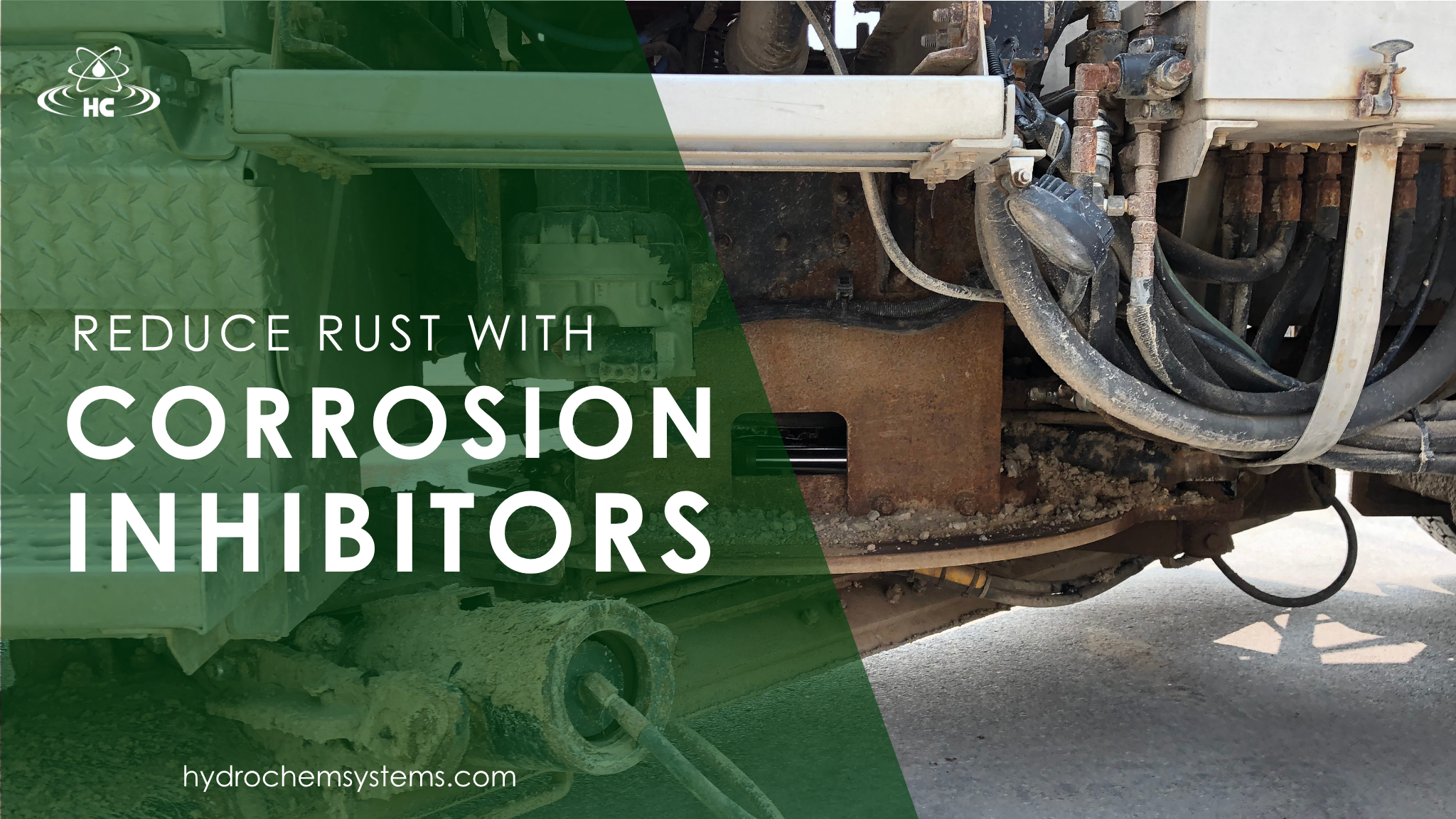Corrosion Inhibitors in Truck Wash Chemicals: How to Extend the Lifespan of Your Fleet

Maintaining your fleet is one of the most important aspects of many businesses, especially when you work in logistics and distribution. But it’s definitely no simple task.
Arguably the biggest threat to maintaining the operation and the longevity of your fleet is corrosion. Corrosion slowly eats away the metal on your trucks and trailers, and often begins in hard-to-see areas — like your undercarriage. They affect your truck’s appearance, operation, and in turn, the safety of your drivers. In this blog post, we will share some tips on how to prevent and reduce corrosion on your semi truck, especially if you drive in areas where road salts and deicers are used in winter.
What is Corrosion?
Corrosion is a natural process that occurs when metals come into contact with moisture, oxygen, and other corrosive agents, like road salt. Even the coastal air near oceans can increase vehicle corrosion. The result is the formation of rust, tarnish, or other forms of corrosion, leading to a weakening of the metal structure and, ultimately, reduced longevity.
Detergents play a vital role in cleaning processes, removing dirt, grime, and contaminants from surfaces. However, the cleaning process itself can sometimes worsen corrosion, especially on metal. This is where corrosion inhibitors come into play.
What is a Corrosion Inhibitor?
Corrosion inhibitors are put in truck wash chemicals to lessen the reactions that lead to corrosion. These inhibitors bond to the metal surface and form a protective layer, acting as a barrier against corrosive elements.
In the context of detergents, corrosion inhibitors play a dual role – they not only clean surfaces but also provide a shield against corrosion, ensuring the metal remains intact and functional.
Having the proper corrosion inhibitors in detergents can help extend the life of equipment, offer improved performance, and provide long-term cost savings.
How to Get the Most Mileage Out of Your Trucks
We’ve found that the average lifespan of a semi truck is about 15 years, or about 700,000 miles. But this is completely dependent on how often you service your trucks, how effectively you wash your trucks, how fuel efficient they are, and where they’re being driven.
Of course, not all parts of the truck will last that long. Components such as the clutch, gearbox, and shocks will have to be replaced at some point during the truck’s lifespan, not to mention regular maintenance parts.
And if your fleet drives through snow every year in areas like the Midwest, then you need to make sure to check your undercarriage more often than normal.
The best way to prolong the life of your semi truck and get the most out of your investment is by regularly washing your fleet.
How Does Regular Fleet Washing Extend the Lifespan of Your Fleet?
In the dynamic world of fleet washing applications, where trucks are constantly exposed to harsh environments, the inclusion of corrosion inhibitors in detergents is a nearly a requirement.
This powerful combination not only cleans surfaces effectively but also acts as a guardian, protecting fleets from the relentless forces of corrosion.
Hydro-Chem Systems truck wash chemicals are manufactured with top-of-the-line ingredients. Many of these are designed to offer corrosion protection on metal surfaces. When used on a regular wash schedule, our detergents can offer extended life on a vehicle. More than 50% of Hydro-Chem Systems’ detergents are manufactured with high quality corrosion inhibitors; many are made with multiple inhibitors.
One of the most effective and economical techniques we recommend is using a 2-Step Process to wash your fleet, which involves applying a low pH detergent followed by a high pH detergent. By using this process, you are able to 'attack' not only the dirt and grime, but also the road salt.
The low pH level in the pre-soak neutralizes the negative charges in the road film and works best on oxidation and minerals - different kinds of road salts are minerals! The high pH level of the alkaline soap is what will target the remaining positive charges and attacks the grease, oils, and other carbon-based grime on your trucks.
You can use this process either manually with a pressure washer and gun, or automatically with a truck wash system. By using a 2-Step process, you can ensure a thorough and efficient cleaning of your fleet.
The additional use of products made fight against salt and offer a protective coating, such as Salt Defender, can help in situations when daily washing isn't possible.
How to Stay 1 Step Ahead of Corrosion
Corrosion is hard to notice until it becomes an even bigger problem — but it doesn’t have to get that far.
By washing your fleet regularly with truck wash detergents made with corrosion inhibitors, you can extend the life of your semi truck and enjoy its benefits for years to come.
We hope you found this blog post helpful and informative. If you have any questions or comments about our chemicals, please feel free to contact us at (616) 531-6420 or email us at info@hcsclean.com. We’re here to help!
